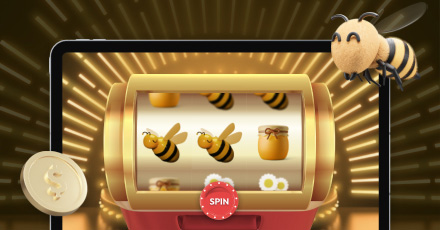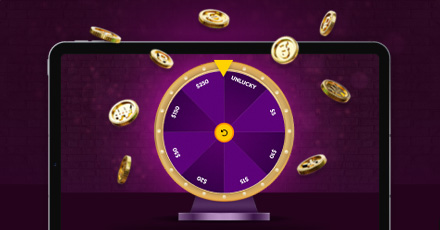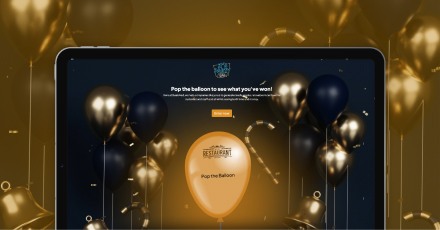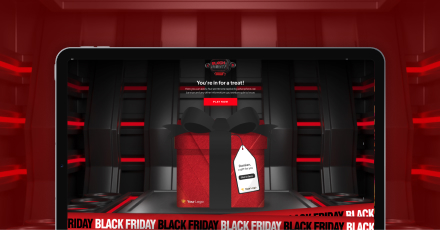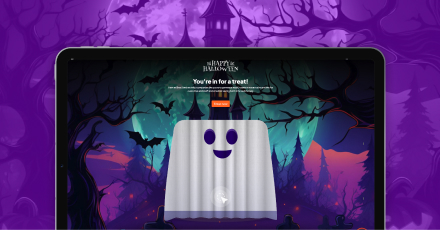
Our BeeLiked CEO shares his thoughts on ‘the personal experience’, and why it could work for you.
How can customers benefit from a personalized experience?
The personal experience is nothing new. In the real world, it’s generally considered a good experience when you have a shop that knows you well, greets you by name and tells you of special offers they have or fresh produce that they think will interest you. This kind of customer service is likely to have you coming back again and again.
It was only a matter for time before this service was reproduced in the online world. Amazon, known for being very customer focused, was the first to make online shopping personal… They showed that it is a winning strategy online as well as on the high street, and other brands are following in their footsteps.
We’re used to seeing personalised experiences already. For example on an iPad or phone, it’s usual to be asked to share your location. Weather apps, news apps, online stores then can be more relevant (it’s quicker to share your location with one click, than to tell every website you visit where you are).
What makes a good personal experience?
Speed is important, no one wants to fill in lots of forms, so one click logins are good. Also only asking for information that is needed and at the time it is needed. So don’t ask my date of birth if you don’t need it as that wastes my time. However, if you explain you want to send me a birthday gift, I might then volunteer it.
Showing transparency about how you’re making suggestions is important too. So Netflix will explain ‘we’re showing you this because you watched this’.
Using someone’s name is a must – saying hello ‘firstname’ works wonders.
Where have you seen personalization done well?
Netflix and Spotify are great examples of how to do recommendations based on what you have rated and what you have played before. It’s really exciting when you are helped to discover something new, and then love it.
Amazon has nailed the personal experience and is always looking for ways to make it even better. It really has built itself into a go-to brand for everything.
Also L’Oreal Paris are doing some interesting things with diagnostic tools at the moment. It captures data about customers features, and uses that to recommend products. I think we will be seeing a lot more of this in the future.
How can it be used to retain customers?
By making the customer journey as smooth and intuitive as possible. The less effort it takes to find the things you like, the more likely you’ll come back again to shop. So making the information the customer is likely to need available at the right time will make for a happier customer.
Once the customer has finished shopping, it doesn’t mean that the personal experience is over. You can send relevant suggestions by email to bring people back. Also using re-targeting ads that show the products they were looking at ensure a higher click rate.
Why do you think a lot of people are wary of their data being used in this way?
There have been so many cases in the news of data being misused, that it is no wonder customers are wary. Not understanding how a company has obtained its information on you is a big fear. After all, it’s just the same in the real world. If someone you’ve never met greets you by name and knows a lot about you, you feel at a disadvantage and are instantly very suspicious of them.
So how can a company avoid alienating its customers?
Transparency is key: let them control the information they share, and be very clear about why you are asking for it, and what you will and won’t do with it. Also, make sure that the personalization process is used correctly. If your algorithm repeatedly shows your customers products they don’t want, they will think you don’t understand them. A clunky, bad experience is worse than no personalization at all. If done well, it should feel so natural that the customer may not even be aware of it.
What benefits are there for businesses who start to personalise the customer experience?
Companies that use personalization typically see big increases in conversion (from browsing to buying), and higher order values. Therefore it really – literally – pays to understand the customer.
What steps should be taken before personalization?
Firstly, take the time to know your customers better. Create a strategy to continually learn, and tease information from your fans, followers, email lists and store visitors.
Think about those ‘leave your business card in the glass bowl’ contests. It’s that idea, but in a digital world.
What issues may come up when collecting data?
Understanding the legalities of using data can be tricky, particularly as they vary from country to country. If you hold data in the UK you must be registered and t is important to understand the Data Protection Act.
EU data protection laws are strict so make sure you are aware of the rules.
The US does not have a dedicated data protection law, but instead regulates primarily by industry, on a sector-by-sector basis, which can be quite complex as there are lots of sources of privacy law in the US, including laws and regulations developed at both the federal and state levels.
In all cases, it is really important to understand the regulatory systems you are dealing with before you start. In most cases, it is well worth investing in reliable advice.
What can we expect to see in the future?
Personalization will come as a standard part of the online user experience, and as such, will be part of the customer’s expectations.
What’s next for BeeLiked?
BeeLiked will soon be launching a new Audience section, which will give companies deep insights into the people that make up their social and online audiences, as well as communication tools to help with getting in touch.
By running campaigns on BeeLiked you can, bit by bit, learn more about who your audience are. This information can then be used in everything from your salesforce or hubspot CRM, mailchimp and even in ad retargetting and profiling.
This will work alongside our existing campaigns, and are designed to be fun and viral. They attract existing audiences to volunteer data, and spread the word to their friend networks.
Inspired yet?
If you’re interested in upping your marketing game this year, take a look at BeeLiked. We offer easy to set-up social media marketing campaigns to suit every business and platform. From Twitter contests, to holiday-themed online games, there’s an option for every campaign.
About BeeLiked
BeeLiked offers companies an ever-growing portfolio of campaign types that are quick to create, with full design flexibility, performance tracking and data collection capabilities to ensure your campaign and promotion exceed all your expectations.
The BeeLiked Platform can help you engage and incentivize your audience and customers across their life-cycle and journey.
BeeLiked is on a mission to prove the ROI of innovative gamified driven marketing. Click here to start your 14 day free trial


